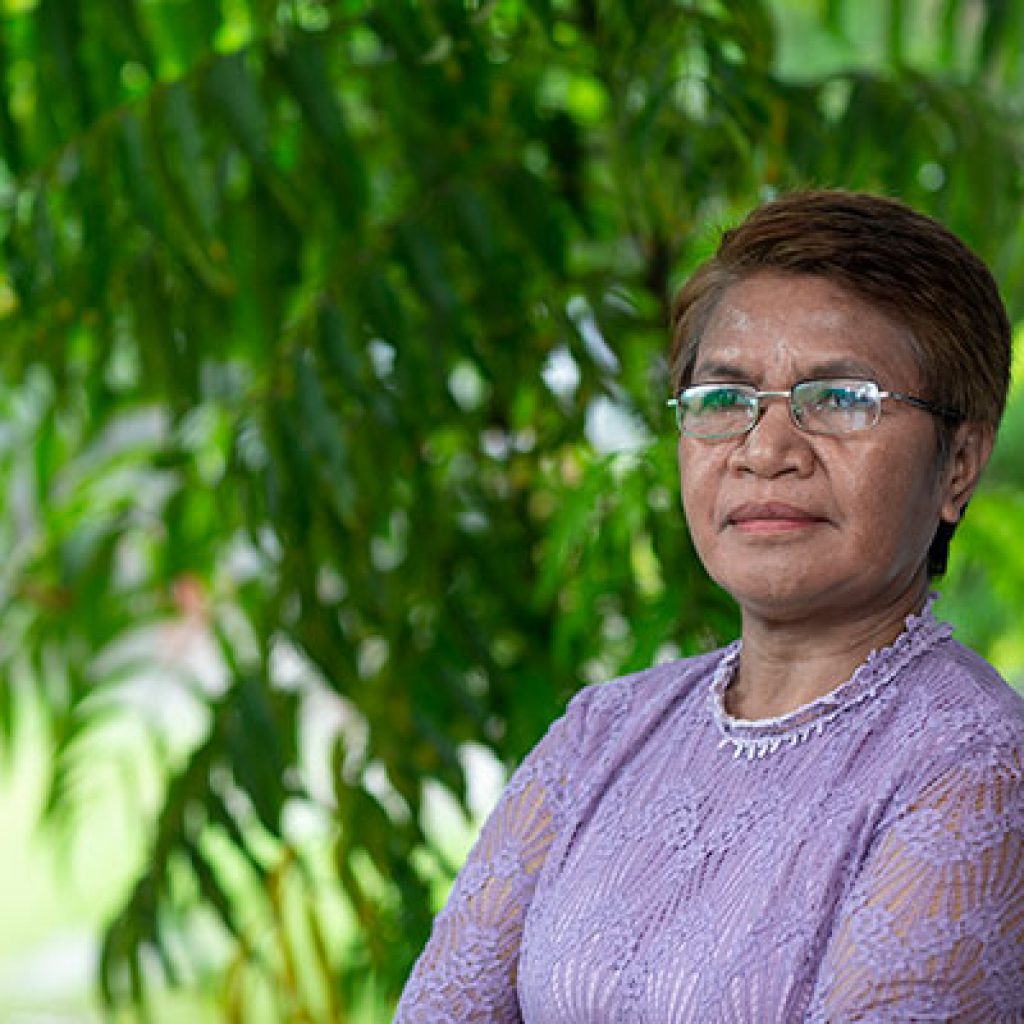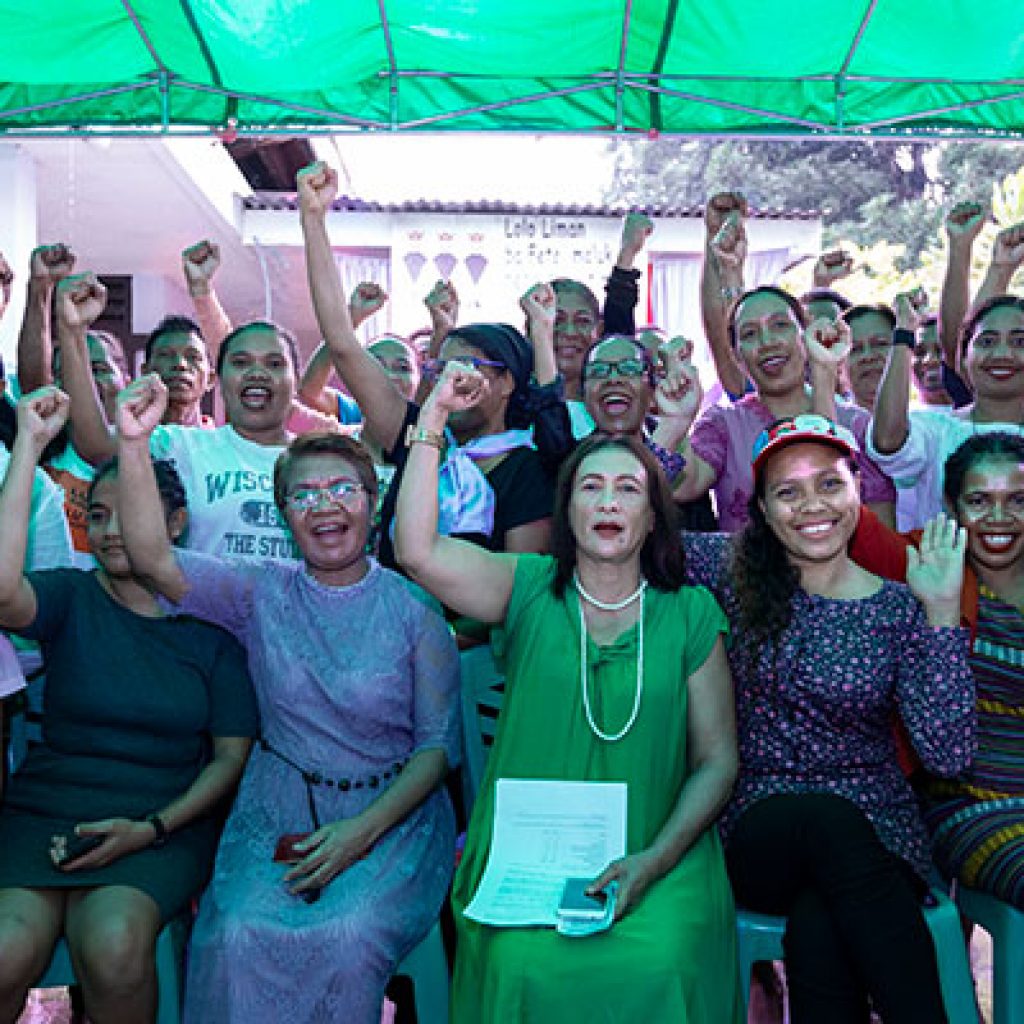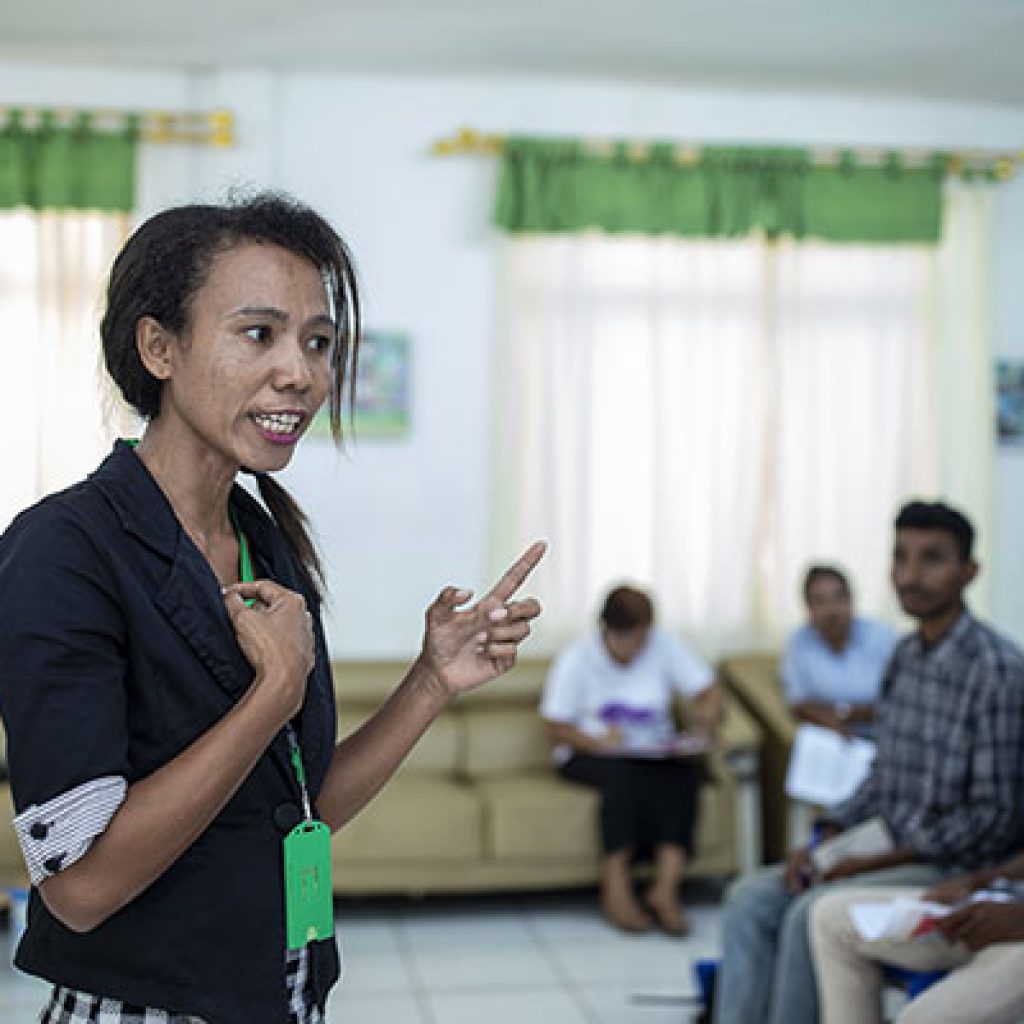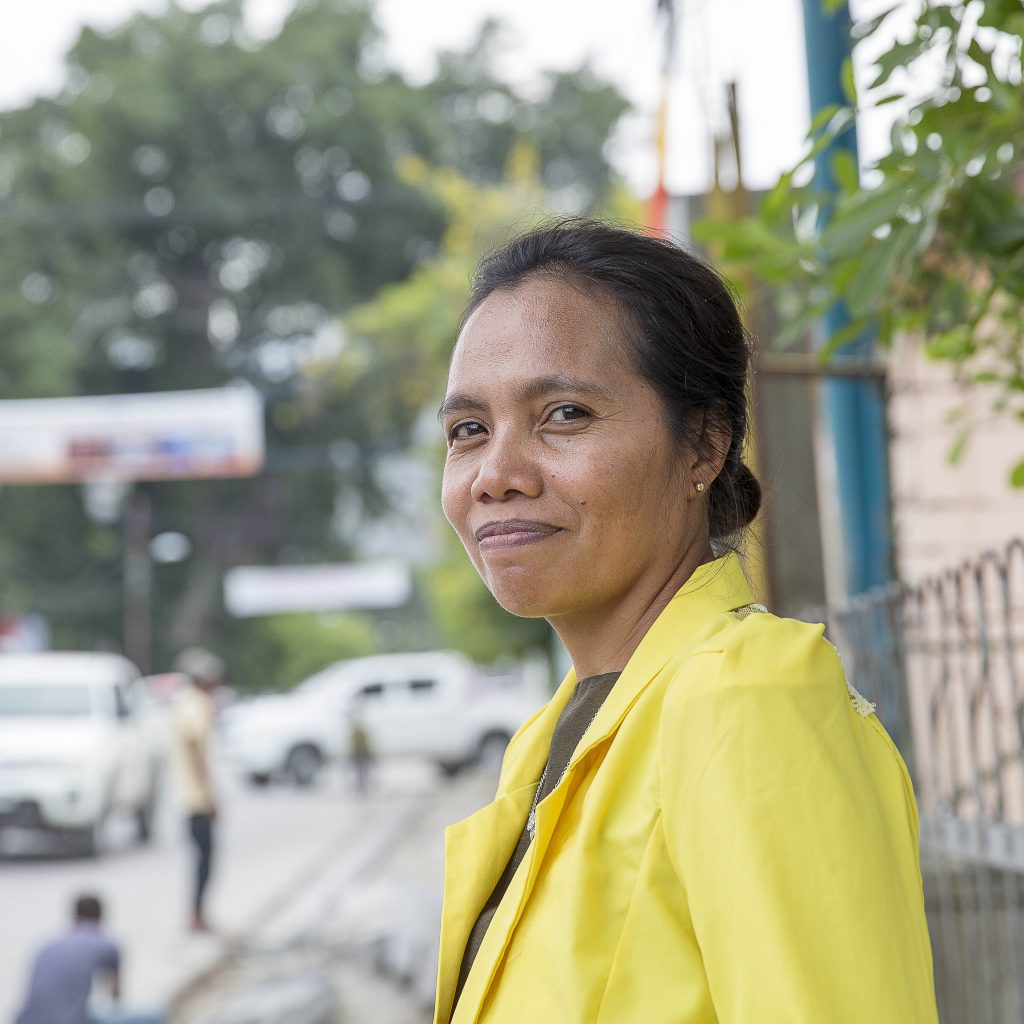
My story: being a strong leader in Timor-Leste
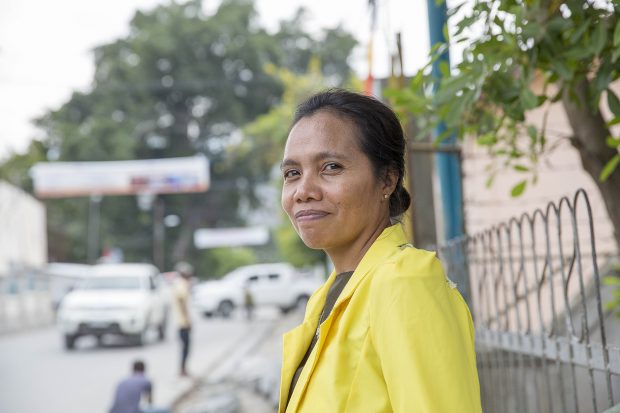
In the most recent Village elections in Timor-Leste, the number of women Village Chiefs doubled. Yet despite this apparent quantum leap, the jump was from just 2% to 4%. The view of women locally as leaders is very slow to change when it comes to businesses and communities.
Women who are interested in running for positions of power face many barriers before they even decide to stand as a candidate. For example, women frequently have less access to resources, leadership experience and networking opportunities while discriminatory social attitudes can affect the extent to which women are perceived as effective leaders.
There is still a deeply entrenched stereotype that women should be at home. This is something that Alzira Reis challenges every day, both by being a woman CEO, and running the Alola Foundation, an organisation that trains women to be leaders.
In this year’s Village election, 12% of the women Alola supported were elected – nearly double the rate of women who ran overall.
We sat down with Alzira to talk about how she got to where she is, and what advice she gives women seeking to lead.
Is Timorese society welcoming of women who want to become leaders?
I’d say about a quarter of society supports women leaders and believe that women are just as capable of leading as men. The rest still believe women should be responsible for domestic work and do not have the influence and ability to solve problems in the community. Sometimes even women don’t support each other.
What has been your personal journey to becoming a leader?
My journey to becoming a leader has taken about 13 years. I have always been driven by the desire to serve others without hoping to get something out and learn from all the experience I have gained.
I first joined the Alola Foundation in 2003, starting as a volunteer and going on to occupy many roles. I spent one year with the UNDP to broaden my experience and was back to Alola Foundation in 2008 as an operation manager.
In 2013, I was selected as the second Timorese CEO for Alola Foundation which works for improvement of Women and Children’s life in Education, Health, Economic Empowerment and leadership. I’ve also been on the board of several women’s organizations and non-government organisations in Timor-Leste to share what I’ve learned as a woman leader.
What role have women played in supporting you?
If you want to be a leader, be it in business or politics, you need to be strong mentally, as the negativity from others can affect your confidence. But it makes a huge difference to have women around you who encourage you to compete when you don’t have the confidence.
Women sharing their experiences and leadership styles has also been really important to me. I have always tried to strengthen myself through experience gained from others and also learn from certain stages.
What struggles have you faced trying to speak out and lead in a room full of men? How have you overcome these?
Early on in my career I learned that building my self-confidence is crucial. This of course takes time, but my belief in my authority as a woman and gender equality as a human right has really helped me. Most importantly, I continue to engage men in the discussions about why having women in leadership matters.
I’m lucky to have a husband who is constantly supporting me in the process, as well as friends that encourage me and have confidence in me.
As a mentor for women leaders, how do you coach them to succeed in a room full of men?
I provide guidance and tips based on my experience to always be positive and optimistic about what you are doing and why you are doing it. Just be yourself and believe in the advantages that women have. I tell them that life is a journey of learning and supporting each other.
Being a leader is a wise decision for the sake of positive change. Rest assured that your leadership will be successful because a lot of people out there are waiting for your success and will continue to support you.
Current women leaders need to ensure that existing policies provide opportunities for women to participate in a flexible way. Share you experiences with others, and motivate and coach women more junior to you to believe they can lead.
What two key skills do women need to succeed as leaders in Timor-Leste?
Self-awareness and wanting to continuously self-improve in the face of change is really important. Building relationships, especially with other women, helps more than you’d think. These networks provide women with spaces to explore their capabilities and confidence, which helps everyone.
The Alola Foundation was founded in 2001 by then First Lady Kirsty Sword Gusmao to address the widespread sexual violence against women and girls in Timor-Leste. Since its inception, The Alola Foundation has broadened its focus, and now has programs in education, health, economic empowerment and advocacy.
Keep in touch with women's rights
Register to receive updates and stories on women's rights around the world.
